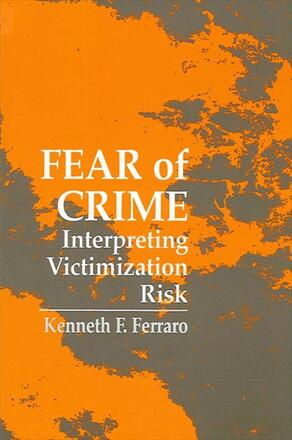
Fear of Crime
Interpreting Victimization Risk
Alternative formats available from:
This is an examination of the factors that contribute to the risk of being victimized, such as crime rates and environmental and personal variables.
Description
Ferraro examines how people interpret their risk of criminal victimization and identifies who is most likely to be afraid of crime. Although many previous studies of fear of crime do not explicitly consider the concept of risk or perceived risk in estimating the prevalence of fear, the approach taken here considers perceived risk as central to the entire interpretive process. It links national survey data on how people think about crime to official crime rates in America, and uses the comprehensive set of environmental and personal variables on a nationally representative sample to examine how fear develops for ten different types of crime.
Kenneth F. Ferraro is Professor of Sociology at Purdue University.
Reviews
"This is the first study of its kind to use national data to examine the risk and fear of crime across various types of victimizations—types of crime. This book examines relationships between official crime risk, perceived risk, and fear of crime among various demographic categories, within different environmental contexts. It specifies and measures two outcomes when actors perceive high victimization risks: fear and constrained behavior. Comparing the explained variance for these results with that for many studies which omit perceived risk shows this model to be an improvement over other investigations in this field of study. " — Julian Roebuck, Sul Ross State University
"Ferraro is well acquainted with all of the current research in this area which makes it interesting to read because you know that he has considered the important existing arguments relative to this issue. The blend of symbolic interactionist theory with traditional survey methodology gives the reader much to consider, long after you finish. It starts you thinking about applying this to more areas than simply fear of crime. " — Marilyn D. McShane, California State University-San Bernardino